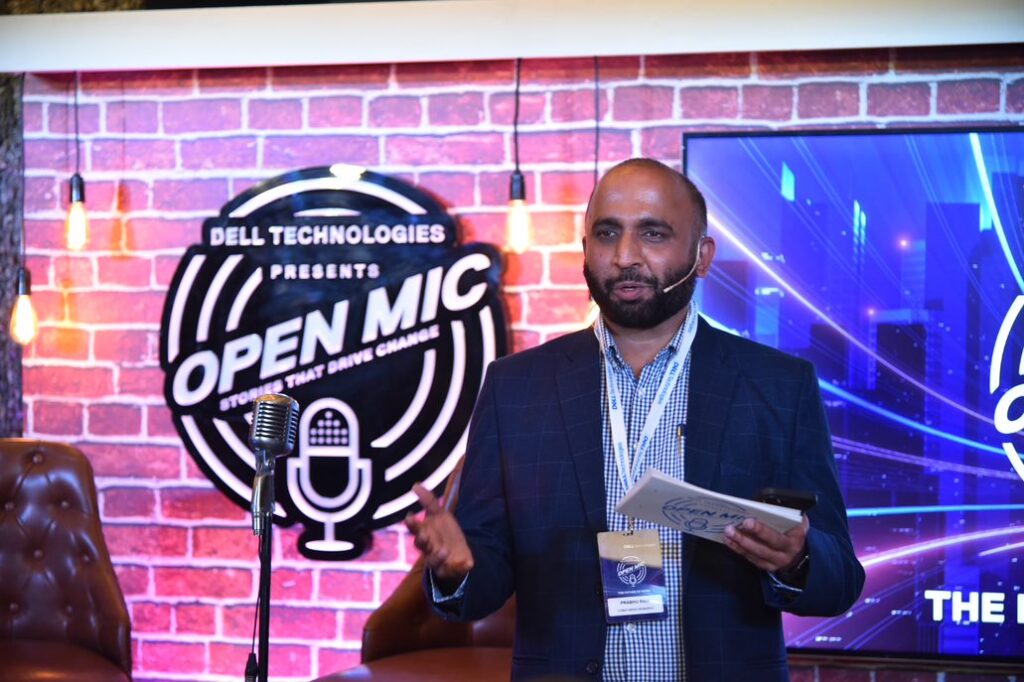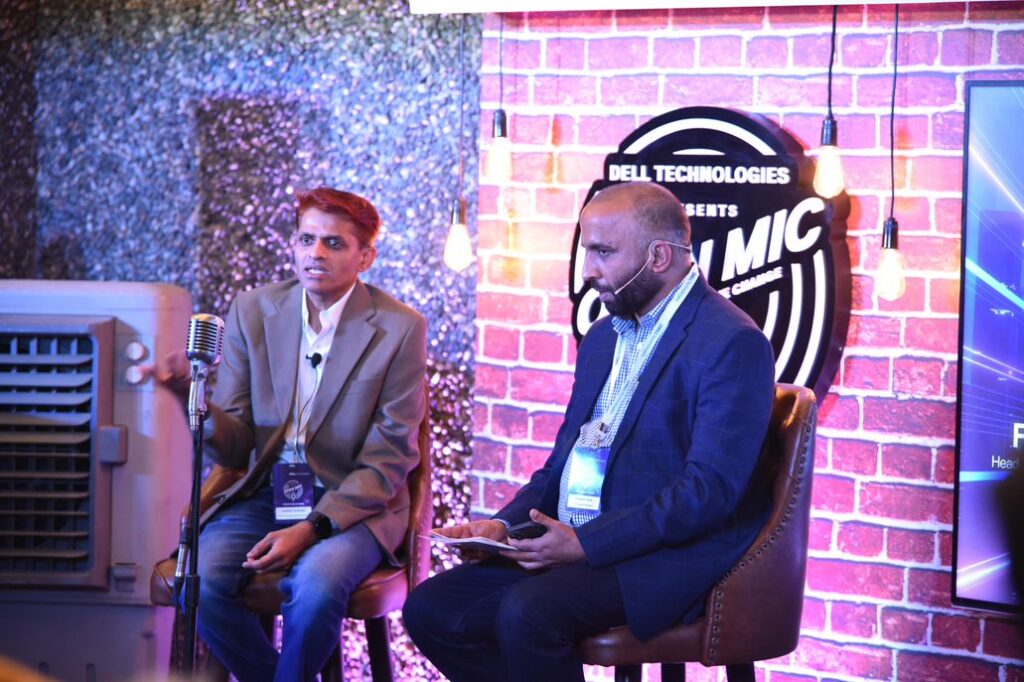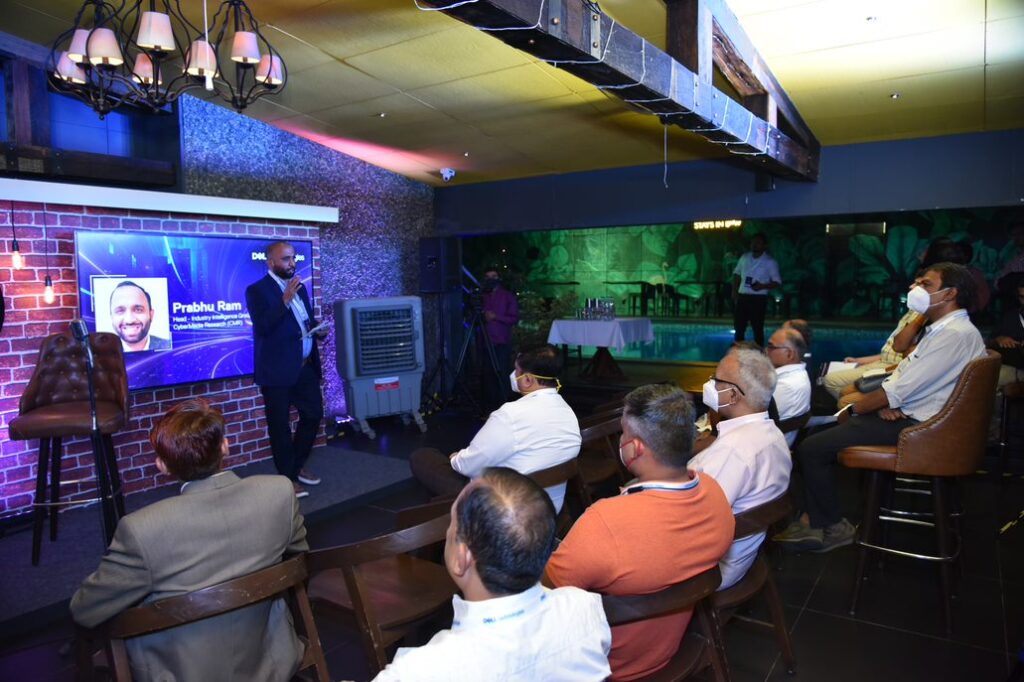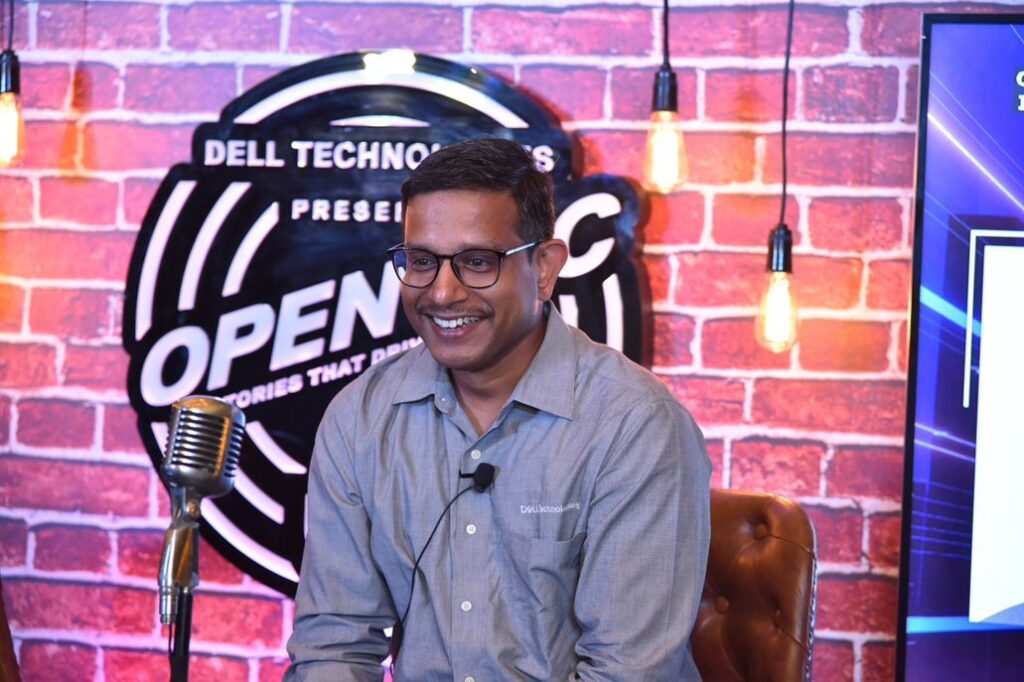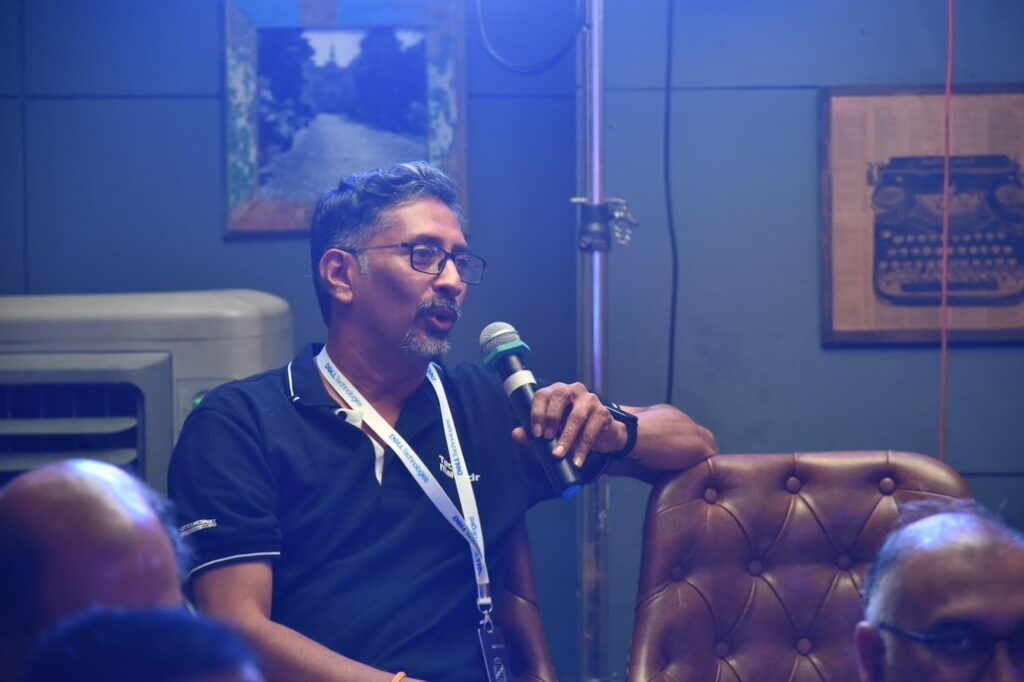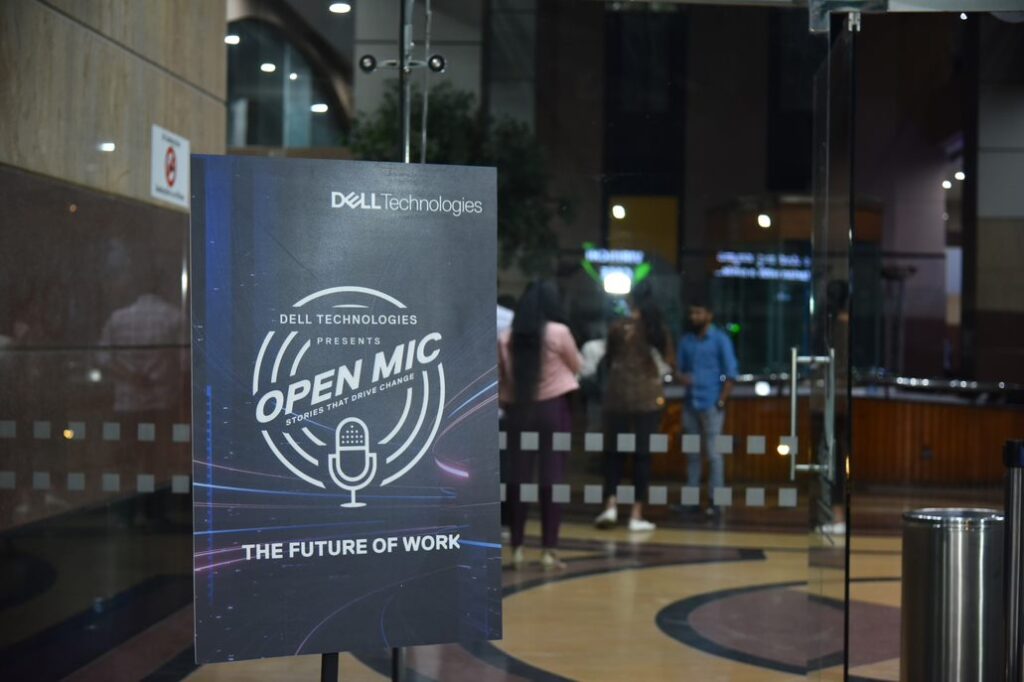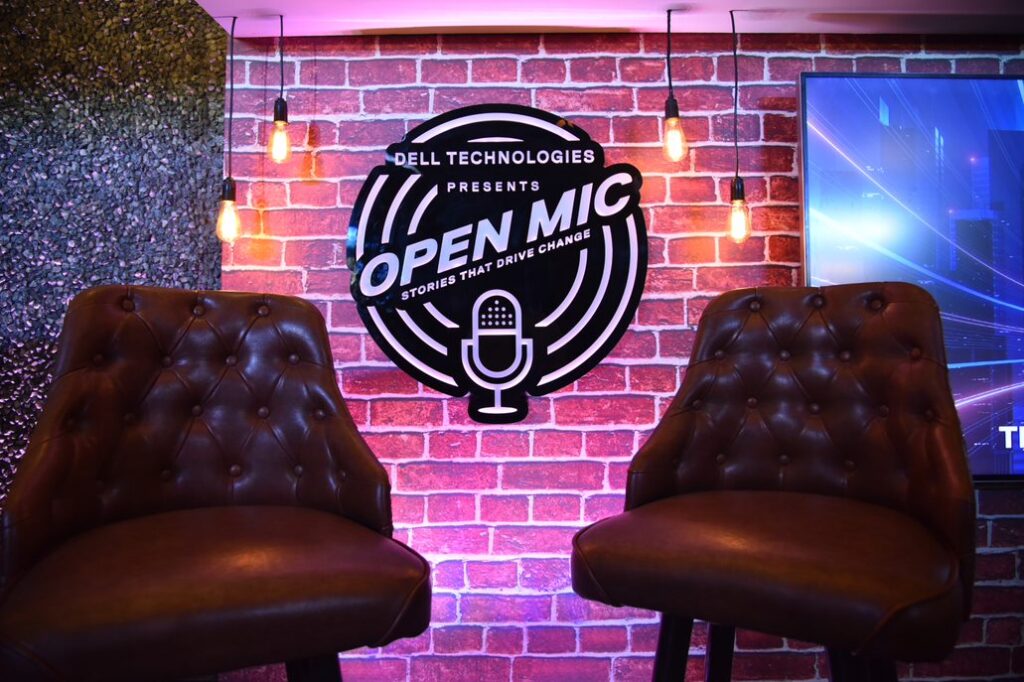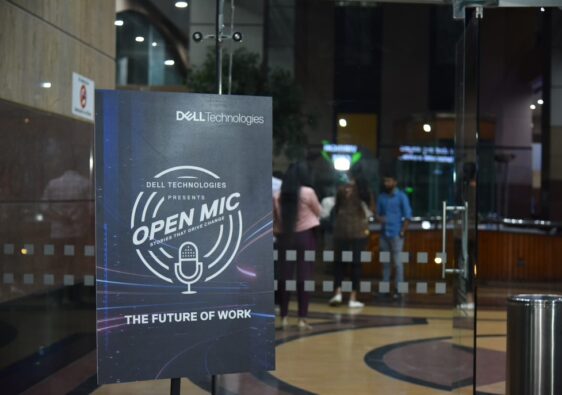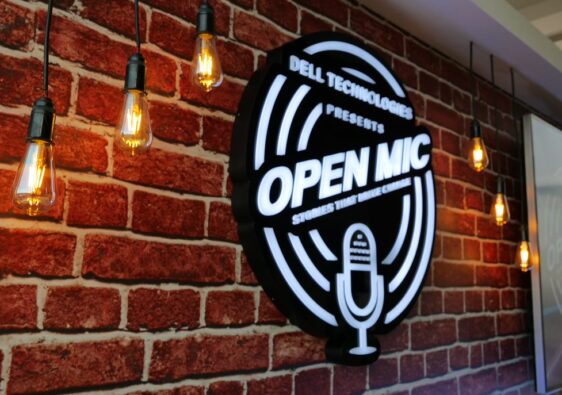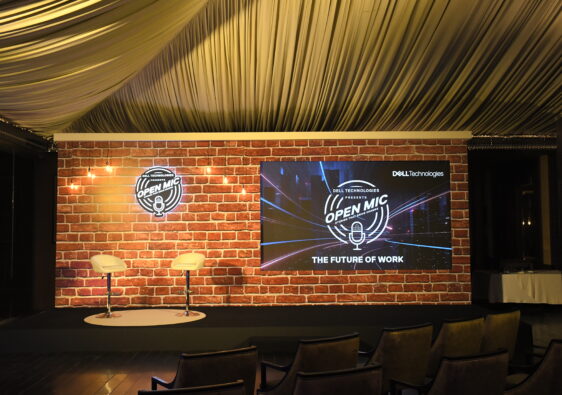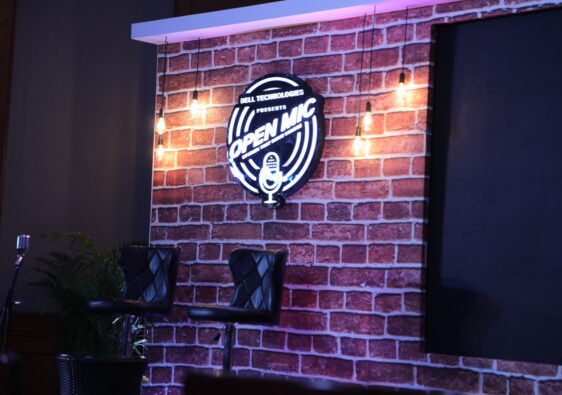Through the course of the pandemic, enterprises, leaders, and most importantly, employees learnt to adapt, innovate, connect, collaborate in an everything-from-home context. In the new normal, we are witnessing a shift from a temporary to a transformative future of work. Much before the pandemic, the digital transformation was sweeping through the workplace, changing the way we work. At the core of this new digital workplace are the CIOs.
Whether it be culture or security, policies or underpinning technologies, the future digital-ready CIO is one who leverages technology, and is able to equip and transform their organizations digitally. In adopting a digital-first approach, such CIOs are able to reimagine their organizations, and differentiate with technology.
The Dell CIO Open Mic – Stories that Drive Change – is a unique forum from Dell Technologies that fosters conversations around the new tech-driven workplace. I have been grateful to have been associated with this forum as a storyteller, enabling conversations with CIO Changemakers. Through the Dell CIO Open Mic forum, the CIO Changemakers have shared their vision, their purpose, and their perspectives on the new tech-driven workplace with me and the CIO community.
I believe that when it comes to culture in a hybrid workplace, there is a trust and outcome-based approach at play, that makes flexible work sustainable.
Meet Harish Sharma, CIO and CHRO of Toyota Financial Services India (TFS), a captive auto finance arm of Japan’s automobile giant Toyota Motor Corporation.
The notes below are from the Dell Open Mic ‘Future of Work’ where Harish and myself engaged in a conversation around the contours of the new work world, the role of technology, and perspectives around the hybrid work from the prism of culture, security and, above all, technology.
Much before the pandemic hit, Harish visualized the need for a collaborative platform. They termed this collaborative platform ‘Digital Workplace’.
TFS has a sales force spread across India, and a centralized back office operations hub in Bengaluru. In the run-up to implementing the digital workplace, Harish and his team simulated a completely virtual work day, much before the pandemic. On the chosen day, every one communicated and collaborated with each other online on the Digital workplace platform.
The digital workplace is about technology, as well as the right culture.
Given that Harish wears a dual hat, he was able to drive the transformation implementation as a CIO, while laying the ground as a CHRO to drive the Digital Workplace platform adoption among users.
Once the pandemic-related lockdowns kicked-in in India, TFS’s Digital Workplace platform enabled the company and the workforce to ensure business continuity, while providing professional and emotional support for the employees to tide over the pandemic.
It’s not just about place, it’s about unleashing the human potential
It is always a formidable challenge to prepare for the unknown, and build a framework with the right resources to enable the workforce, anytime anywhere.
Through the pandemic, TFS built a command centre servicing 160 locations, and ensuring health and safety for employees. This was complemented with a digital platform on health and wellbeing for employees. Lastly, an employee connect initiative was created that provided personalized meeting spaces for employees to connect beyond work.
The tech tools to enable hybrid/remote work
TFS enabled its workforce with the right tech tools, including laptops to ensure flexible and secure workflows.
The future is hybrid.
According to Harish, the future will see varying degrees of hybrid work culture, depending on the organizations, their business objectives and plans. The key to success in such a hybrid world would be an alignment of mindsets across all the levels of the organization – from CxOs to the person on the workfloor.
How is Dell Technologies enabling the modern workplace?
In the new normal, it is imperative to ensure great and personalized user experiences for their employees, for enterprises moving to, and aiming to succeed in a digital workplace. The goal of enhanced user experience is not just about increasing productivity. It is rather to ensure that great user experiences lead to further digital transformation, and adoption of new digital tools for collaboration and productivity.
At Dell Technologies, the focus has been on workforce transformation. The Dell approach focuses on:
- Providing the right devices, for an array of user cohorts, with built-in intelligence, security and privacy
- Enhance user productivity with a layer of software and services
- Accelerate modernization with automation, insights as well as enhanced user experiences in digital workplaces
In addition to the devices, Dell focuses on delivering solutions that enable secure and productive work from anywhere.
In Conclusion
Reimagining the future of work is a formidable challenge. I believe organizations should aim at the following to prepare for the Hybrid Work era.
- Build a strong enabling IT framework. The key to ensuring a thriving hybrid digital workplace starts with equipping the team with the right IT tools, including client devices, IT support services, and supported by bandwidth optimization, among others.
- Enable strong and empathic human-centric work environment. Human experience is at the core of the digital workplace. Organizations should devise strategies to align and prepare its workforce for the complexities of the new normal. The new digital work environment should support employees with their well-being and with technological tools that are personalized to suit their needs.
- Support with digital fluency. Most importantly, organizations should equip the workforce across all levels to be digitally fluent through skilling, re-skilling and up-skilling programs. Personalized learning pathways would enable the teams to prepare for, not just the new normal, but any future outlier events.
